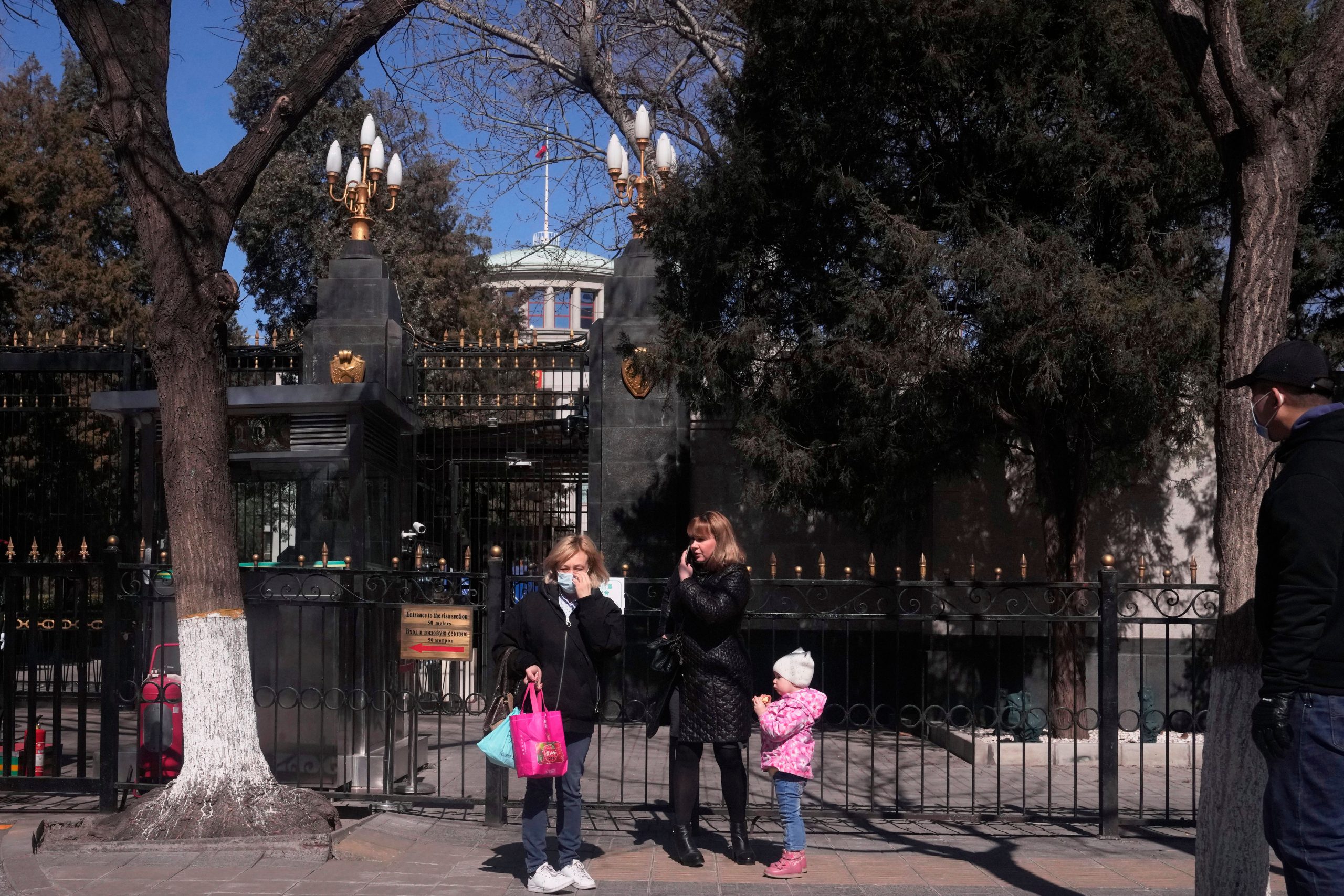As the West condemns Russia, President Vladimir Putin has vocal supporters in China, where the ruling Communist Party tells its people they are fellow targets of US-led harassment.
“If Russia is destroyed, we will be next. This is for sure,” said Wang Yongchun, a retiree in Beijing. “The United States wants to dominate the world.”
Also read: In Pics: Tearful Ukrainians bid adieu to loved ones at train stations
Such comments reflect the stance of a ruling party that is the closest thing Putin has to a major ally: The war should stop but the United States is to blame.
President Xi Jinping’s government has tried to distance itself from Russia’s offensive but avoided criticising Moscow. The government has offered to act as mediator and denounced trade and financial sanctions against Russia.
Also read: Russia-Ukraine crisis: Russian forces seize Zaporizhzhia nuclear plant, says report
Ruling party control of all Chinese media and intensive internet censorship make it hard to gauge public opinion. But what the party allows online and requires the media to publish makes clear what it wants the public to think.
Media outlets were told last week to post only pro-Russian content and to censor anti-Russian or pro-Western views, according to a copy of instructions posted on the social media account of the newspaper Beijing News. The post was later deleted.
Also read: Explained: What is Canada’s new programme for Ukrainian refugees
Online and in social media, expressions of sympathy for Ukraine and support for Russia appear but not criticism of Moscow.
“When a war begins, aren’t it not the children of ordinary people who serve as cannon fodder?” said a post signed by Da Ke Ming Yi on the Weibo social media platform. “Those who died were the children of ordinary people.”
A letter signed by five professors from prominent universities that criticised Russia for attacking a weaker neighbour appeared briefly on social media before being deleted.
Also read: As war rages, Paralympics opening in Beijing without Russia
“We stand against unjust wars,” said the academics from schools including Tsinghua University in Beijing, alma mater of many ruling party leaders.
Comments posted by nationalists criticised the professors for failing to stick to the ruling party’s official position of neutrality.
The ruling party has spent decades using school textbooks and the entirely state-controlled media to nurture a sense of nationalist grievance. It accuses the United States of trying to block China’s rise to its rightful position of global leadership.







